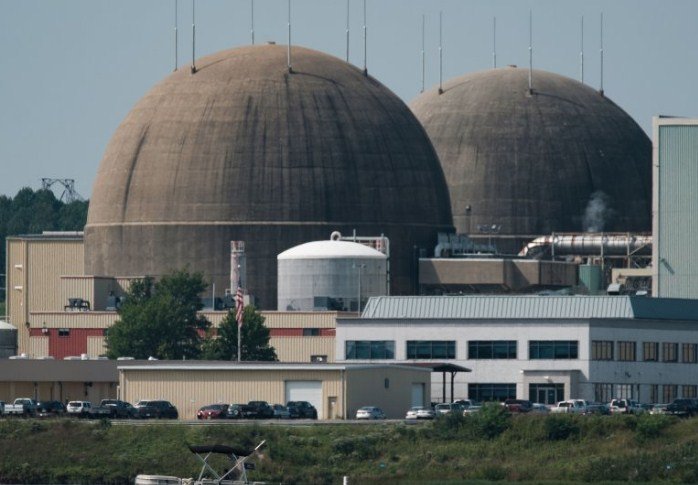What are SMRs and why do they matter?
SMRs are nuclear reactors that have a capacity of up to 300 megawatts (MW), much smaller than the typical 1,000 MW or more of conventional reactors. They can be factory-built and transported to the site, reducing construction time and cost. They can also operate flexibly, adjusting their output to match the demand and complement intermittent renewable sources. Moreover, they can be used for various purposes, such as providing power and heat to remote communities, industrial processes, or military bases.
SMRs are seen as a promising technology for clean energy transition, as they can help reduce greenhouse gas emissions and dependence on fossil fuels. According to the International Atomic Energy Agency (IAEA), there are about 70 SMR designs under development worldwide, with some expected to be operational in the next decade. The US Department of Energy (DOE) has also been supporting SMR research and development, and recently approved the first SMR design by NuScale Power.

How does Virginia plan to support SMRs?
Virginia is one of the states that have shown interest in SMRs, as it has a long history of nuclear power and a goal to achieve 100% carbon-free electricity by 2050. In the 2024 legislative session, two bills were introduced to promote SMR development in the state, but they took different approaches.
- House Bill 2269, sponsored by Delegate Israel O’Quinn, would create a Virginia Nuclear Energy Consortium Authority, a public body that would coordinate and fund SMR research, development, and demonstration projects in the state. The authority would consist of representatives from state agencies, universities, utilities, and industry, and would be able to issue bonds and receive grants and donations. The bill would also establish a Virginia Nuclear Energy Advisory Board, which would advise the authority and the governor on SMR-related matters.
- Senate Bill 1138, sponsored by Senator Amanda Chase, would direct the State Corporation Commission (SCC) to establish a pilot program for SMR deployment in the state. The program would allow any investor-owned utility to recover the costs of constructing and operating one or more SMRs, as long as they meet certain criteria, such as being licensed by the Nuclear Regulatory Commission (NRC), having a capacity of no more than 300 MW, and being located in a qualified opportunity zone. The bill would also require the SCC to report on the feasibility and benefits of SMRs for the state.
What are the pros and cons of the bills?
Both bills have received support from various stakeholders, such as the Virginia Nuclear Energy Consortium, the Virginia Chamber of Commerce, and the Virginia Manufacturers Association. They have also been endorsed by the governor, who signed them into law on March 6, 2024. However, the bills have also faced some criticism and challenges, as they have different implications for the state’s energy policy and economy.
- HB 2269 is seen as a more comprehensive and collaborative approach to SMR development, as it would involve multiple actors and sectors in the process. It would also focus on research and innovation, rather than deployment, which could help the state become a leader in SMR technology and attract more investment and talent. However, some opponents of the bill argue that it would create a new bureaucracy and a potential conflict of interest, as the authority would have both regulatory and promotional roles. They also question the need for a new entity, as the existing Virginia Nuclear Energy Consortium already performs similar functions.
- SB 1138 is seen as a more direct and market-based approach to SMR deployment, as it would provide incentives and certainty for utilities to invest in SMRs. It would also target economically distressed areas, which could benefit from SMR-related jobs and revenues. However, some opponents of the bill argue that it would create a monopoly and a subsidy for SMRs, as it would allow utilities to recover the costs of SMRs without any competitive bidding or oversight. They also worry that SMRs could pose safety and environmental risks, as they are still unproven and untested.
What are the next steps for SMRs in Virginia?
With both bills becoming law, Virginia has taken a significant step towards SMR development and deployment in the state. However, there are still many challenges and uncertainties ahead, as SMRs are still in the early stages of commercialization and regulation. Some of the key issues that need to be addressed include:
- Technical feasibility and safety: SMRs need to demonstrate that they can operate safely and reliably, and meet the performance and cost expectations. They also need to obtain the necessary licenses and permits from the NRC and other agencies, which could take years and require extensive testing and evaluation.
- Economic viability and competitiveness: SMRs need to prove that they can compete with other energy sources, such as natural gas, solar, and wind, in terms of price and value. They also need to overcome the financial and regulatory barriers that often hinder nuclear projects, such as high upfront costs, long lead times, and public opposition.
- Social acceptance and public engagement: SMRs need to gain the trust and support of the public and the stakeholders, who may have concerns or questions about SMRs’ safety, security, waste management, and environmental impact. They also need to communicate the benefits and opportunities of SMRs, such as job creation, economic development, and carbon reduction.
Virginia’s nuclear future may depend on how well these issues are resolved and how well the two bills are implemented and coordinated. SMRs could offer a new and promising option for clean and reliable energy in the state, but they also pose significant technical, economic, and social challenges that need to be addressed.

Comments